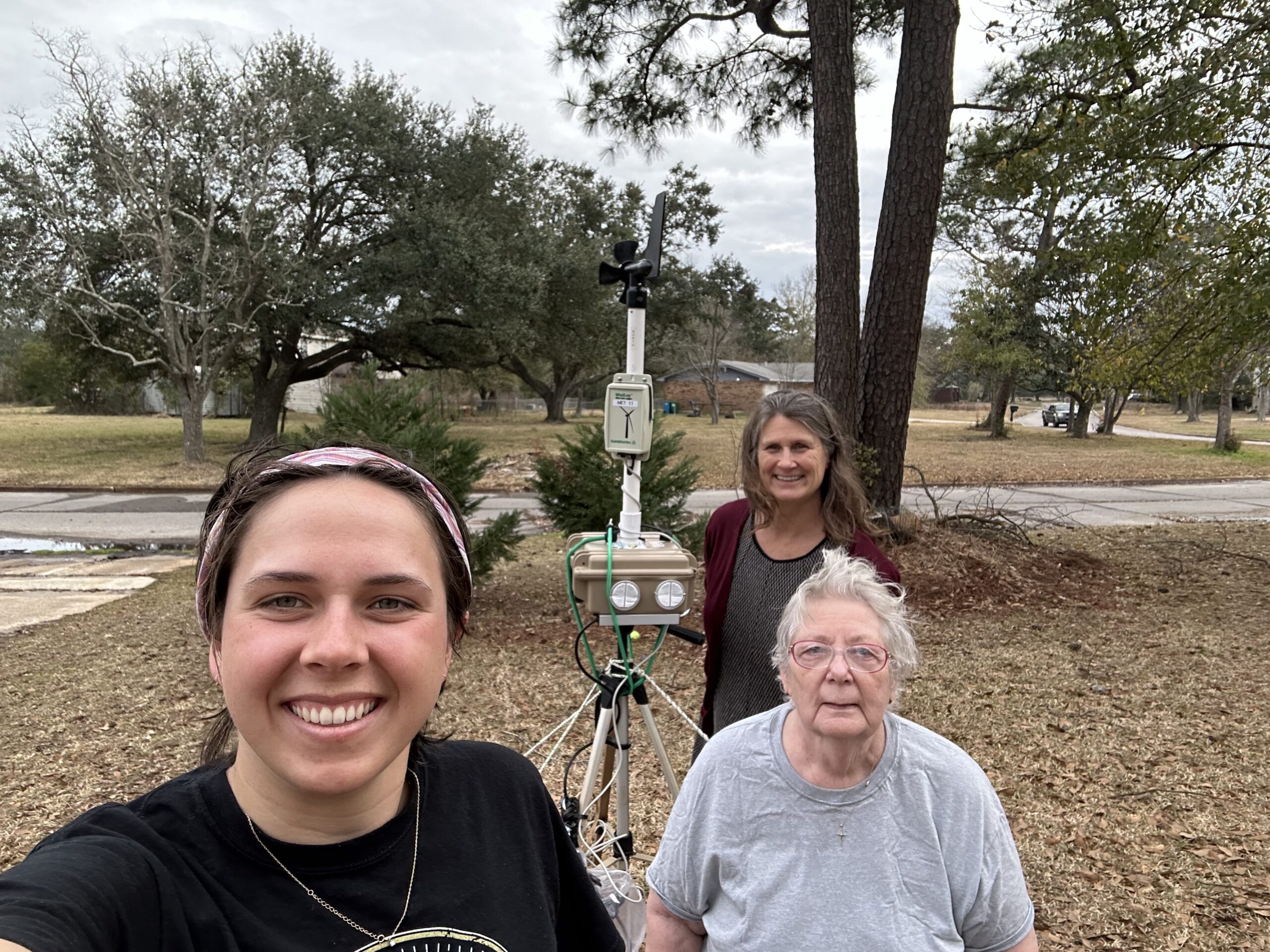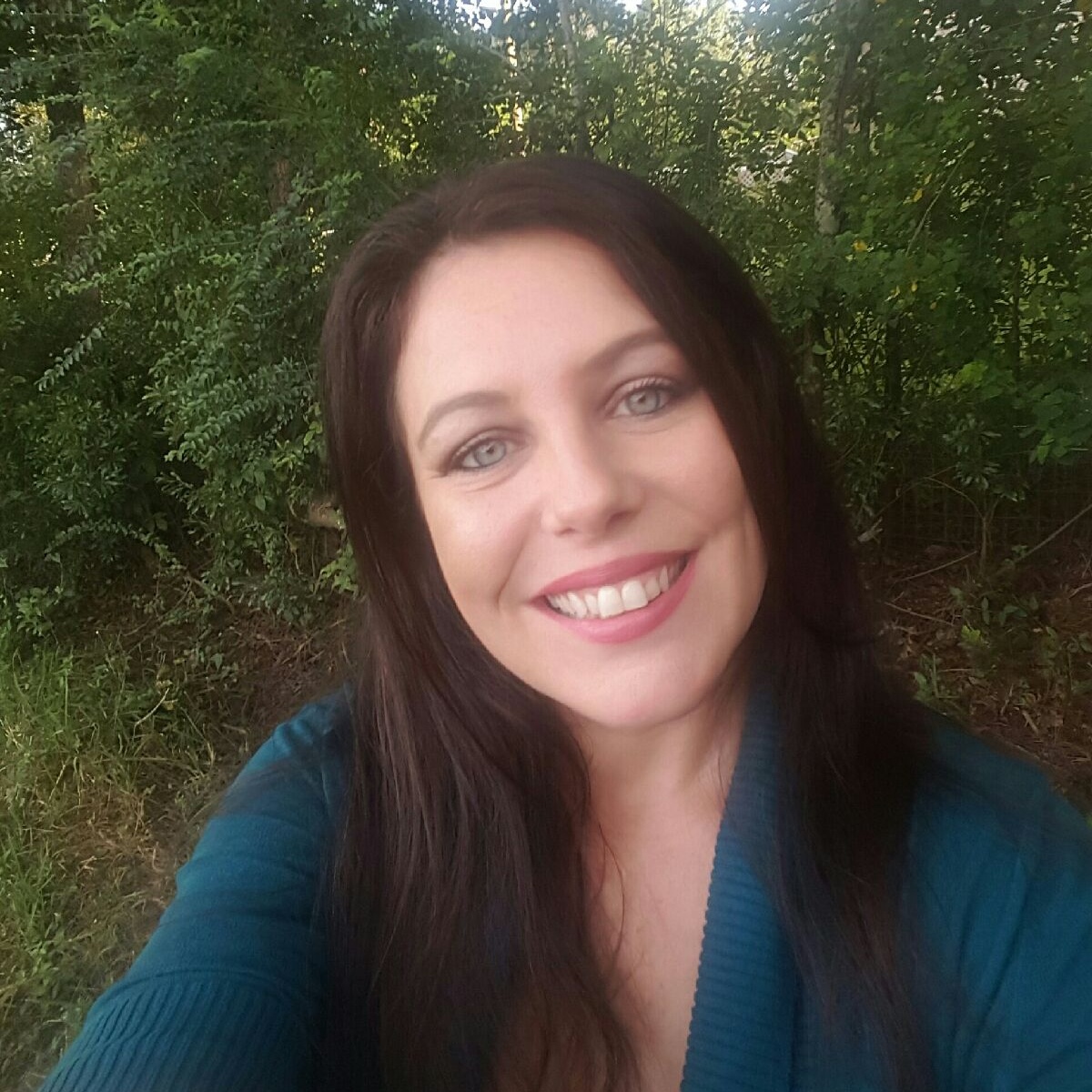Assessing industrial pollution and health impacts in Pascagoula, Mississippi to assist in buyout efforts
Mississippi, Pascagoula,

Image by Ed Judkins from Pixabay
Pascagoula, Mississippi is located near Bayou Casotte and the Gulf of Mexico. Large facilities nearby have been causing visible pollution and the resulting health impacts have been burdening the community for years. The community and Cherokee Concerned Citizens have collected various air pollution and health data throughout the past ten years. Through this Thriving Earth Exchange project, the community worked to synthesize this data to visually communicate the present data to the community, county officials, and identify areas where more data may be needed. This will allow the community to take further informed action toward their goal of a buyout and increase understanding throughout the community.
Results
Activities
In the initial phase of the project, the Cherokee Concerned Citizens community leads and residents shared their experiences in the neighborhood with Thriving Earth Exchange community scientists. Based on these conversations and the prior environmental data collected by the community and their partners, the community scientists developed documents that highlighted pollution episodes in the neighborhood and connected this pollution to potential health outcomes. The community scientists then traveled to Pascagoula, experiencing the pollution first-hand and meeting individually with residents listen to their stories, share the summary documents, and co-develop plans for future studies and activities. These conversations were incorporated into a report by Cherokee Concerned Citizens. Following this visit, the community scientists secured additional funding to conduct low-cost air monitoring both within and outside the neighborhood. Community members helped set up the instruments, download data, and trouble-shoot
issues during the two months of observations. During the air monitoring period, residents also recorded any air quality-related symptoms they felt or industrial odors they noticed. The team used this data along with an analysis of local winds to identify the frequency and extent of pollution episodes in the neighborhood. During a final visit, community scientists shared the data with community members and gathered their feedback and insights into a final paper. Understandings from this study have helped the community better articulate their concerns, needs, and proposed solutions to town and county leaders as well as recommend modifications to measurement protocols used by the Mississippi Department of Environmental Quality.
Outputs
(many of these documents are available on the Cherokee Concerned Citizens website https://www.cherokeeconcernedcitizens.com/communityscience)
● Info sheet on the history of industrial pollution in the neighborhood
● Info sheet on wind analysis and dispersion modeling of a pollution event in February 2023
● Report on the shortcomings of the Mississippi Department of Environmental Quality government monitoring in response to the February 2023 pollution event and recommendations
● Info sheet on the potential health impacts of dust, odor, and noise and associated pollutants.
● Info sheet synthesizing environmental data previously collected in the community
● Transcripts of conversational interviews and community workshops (consistent with University of Colorado and University of New Hampshire IRBs)
● Local news story “Researchers visit Pascagoula neighborhood to help track nearby industry pollution,” by Amber Spradley of WTOK, Jul. 22, 2023.
● Additional funding secured from the University of Colorado Boulder Community Impact Grant and the University of New Hampshire Sustainability Institute to conduct additional air monitoring and symptom and odor documentation in the community
● Datasets of low-cost sensor observations of pollutants including volatile organic compounds and particulate matter.
● Community odor logs.
● Heavy metal analysis of children’s nail clippings noting high levels of nickel (following protocols of approved IRB in in collaboration with Dartmouth Trace Element Analysis Lab)
● UNH Sustainability Institute article, “Community science inspires action in Pascagoula, Mississippi” May 15, 2024.
● Research talks at the Air Sensors International Conference (May 2024) and AGU Fall Meeting (December 2024)
● Cherokee Concerned Citizens presentations, including data workshops, info sheet discussions of air pollution and health, and webinar on influence of wealth patterns on local pollution.
● Manuscript published in peer-reviewed journal. Frischmon, Caroline, Jennifer Crosslin, Leah Burks, Barbara Weckesser, Michael Hannigan, and Katharine Duderstadt. “Detecting air pollution episodes and exploring their impacts using low-cost sensor data and simultaneous community symptom and odor reports.” Environmental Research Letters (2025). Read the article here: Detecting air pollution episodes and exploring their impacts using low-cost sensor data and simultaneous community symptom and odor reports – IOPscience
Outcomes
● The project increased engagement of community members in the Cherokee Concerned Citizens’ organizing activities. They now host monthly meetings in the neighborhood and have expanded their symptom and odor documentation.
● Community members reported feelings of validation that their concerns were documented and reflected in the air monitoring data
● Community members reported sharing some of the documents with their health care providers while seeking health care related to pollution exposure
● Cherokee Concerned Citizens is routinely using the information sheets and reports from this Thriving Earth Exchange project to present to town and county
Future Work
● The project team has applied for an EPA grant to continue this work. If funded, they aim to expand the air monitoring and work with anthropologists to infuse the community’s lived experience into the data storytelling
● The community scientists are also technical advisors for a new project centered in “Relocation to Restoration” led by the Cherokee Concerned Citizens in partnership with Buy-In Community Planning.
● Community scientists continue to meet with community leaders to discuss ongoing pollution episodes, interpret continuous particulate monitoring from Purple Air sensors, and provide insight into projects involving other groups such as the Brown Noise Lab.
● The team is also beginning an air pollution transport modeling project to inform the Relocation to Restoration project and how replacing houses in the Cherokee Forest neighborhood with greenspace or forested buffer following a buyout might improve air quality for the rest of Pascagoula.
● Community leaders and scientists from this project will continue to present results from this project to promote the value of community-based science through boundary organization such as Thriving Earth Exchange
Reflections
What are 2-3 things that contributed to the project’s success?
▪ Biweekly meetings with the entire team, so the scientists could get frequent insight and feedback from the community leads
▪ Biweekly meetings between just the scientists to discuss analysis plans
▪ Having the scientists visit the community was a really important part of our projects success, as they gained perspective on the community’s experience and were able to brainstorm expansions on their work, which led to securing additional project funding through their universities
▪ Caroline is a graduate student and is able to incorporate this work into her dissertation. This allowed her to invest more time into the work than if the project was purely volunteer-based.
▪ Pairing two scientists from different fields (Mechanical Engineering and Atmospheric Science) and at different career stages (Early and Mid Career)
What would you do differently if you were to do it again?
It would have been helpful for the scientists to meet more of the community sooner, instead of only interacting with the Community Leads for the first phase of the study.
What lessons can you share that would be helpful for others who may be embarking on a similar project journey?
▪ Allow the first few meetings to just be about getting to know each other. The scientists spent the first few meetings hearing stories from Barbara about life in the community. This insight guided all of their subsequent work.
▪ Recognizing that everyone’s diverse experiences and expertise can be valuable. Scientist at any level can contribute as well as learn alongside the community.

The project team published a peer reviewed article about their work together and issued the press release below regarding it:
Community-Led Air Monitoring in Pascagoula Exposes Overlooked Industrial Pollution Episodes
New Study Validates Residents’ Reports, Highlights Gaps in Regulatory Monitoring, and Offers a Blueprint for Community-Led Environmental Monitoring Efforts
Pascagoula, MS — March 31, 2025 — A community-based air monitoring study in the Cherokee Forest neighborhood of Pascagoula, Mississippi, captured short-term industrial pollution episodes that are directly affecting residents but have gone undetected by regulatory monitoring methods. The study, initiated by an American Geophysical Union Thriving Earth Exchange partnership between Cherokee Concerned Citizens, the University of Colorado Boulder, and the University of New Hampshire, demonstrates the power of community-driven air monitoring to capture pollution episodes in real time and challenge existing monitoring practices in communities impacted by industrial pollution.
The project was inspired by a significant pollution event that left residents feeling ill. When the state regulatory agency arrived to take air samples, the air was already clear again, resulting in no recorded pollution. Following this event, the community set up low-cost air monitors that exposed a recurring pattern of short-lived, intense pollution episodes that aligned with residents’ health complaints, including nausea, burning eyes, and sore throats. In one striking instance, multiple households simultaneously reported vomiting and nausea, which coincided with an intense pollution increase detected by the monitors.
“Our findings demonstrate how current monitoring strategies fail to capture the full scope of pollution exposure in communities sitting on the fence line of heavy industry,” said Caroline Frischmon, graduate student at the University of Colorado Boulder. “Short-term spikes in pollution, like the ones we observed, impact the community’s daily lives but are often overlooked because regulatory monitors either average data over longer periods or take samples after the pollution has already dissipated.
The need for alternative monitoring approaches has become even more urgent as the new Trump administration aims to weaken oversight of industrial emissions and has ordered federal funding cuts for air monitoring projects. While low-cost air sensors are proving invaluable for community-led monitoring, they come with challenges—particularly in detecting pollutants like volatile organic compounds (VOCs), which require extensive calibration and technical expertise that many communities lack (especially without federal funding support). However, this study took a different approach by analyzing relative pollution levels rather than absolute concentrations, bypassing the need for complex calibration while still identifying impactful pollution episodes.
“Finally, we have strong evidence showing how our neighborhood is more impacted than others,” said Barbara, leader of Cherokee Concerned Citizens. “This is a turning point for our fight for cleaner air.”
The findings from this study will be used to advocate for more responsive pollution monitoring practices at the state level. The methods applied in this study offer an accessible model for other communities to document pollution impacts that might be otherwise missed by regulatory monitoring.
###
For more information on this project or to view the full study, please visit https://doi.org/10.1088/1748-9326/adc28a.
Waiting for government action on air pollution, Pascagoula community grabs the wheel
Read an article in Mississippi Today about this project
Description
About the Community
Cherokee Concerned Citizens (CCC) is a fenceline community in Pascagoula, Mississippi organized to protect the health and well-being of our families and neighbors from exposure to industrial pollution. The neighborhood is over 60 years old. Many residents have lived in the community since it was first developed. Over time the industry has expanded to include seven large oil-chemical facilities, releasing over a million pounds of toxic pollutants into the air, land, and water annually.
They officially formed in 2013 after several learned they weren’t the only ones submitting reports to the Mississippi Department of Environmental Quality (MDEQ) of the noise, odors, and dust issues. Fifty households came together to organize for a buyout. CCC see a buyout as the best solution for their community because they believe environmental regulation and enforcement will not be enough to reduce the health risks associated with living so close to so many polluting facilities.
According to ProPublica investigative research, the neighborhood is considered a cancer hotspot with some households at risk of cancer 3.4 times more than what EPA says is acceptable. Based on their health survey, the people in their neighborhood are sick about nine days a month. At least 35 people have been diagnosed with cancer, and many reported chronic respiratory and sinus issues, lung, heart, neurological, and other health issues. In the last five years, at least 23 people have died of cancer or heart and lung issues.
About the Project
The Cherokee subdivision of Pascagoula, Mississippi is near several large polluting facilities including a Chevron Refinery, BP/Amoco/Enterprise gas processing plant, First Chemical/Chemours, Gulf LNG, Mississippi Phosphates, VT Halter and Halter Marine. These facilities have been emitting large amounts of industrial pollution harming the local resident’s health. The local community organization, Cherokee of Concerned Citizens, has large amounts of data from past studies including EPA monitors, self reported data, permit information and testing, PM data, VOC data, site test results, noise pollution, Benzene monitors, personal sampling, state or federal level public records, and health surveys.
The goal of this project is to synthesize the information that already exists and make these findings accessible and understandable. Through this project we hope to identify what in the air is most threatening and the highest potential health risks. The current air pollution data can be used to connect air pollution and potential health outcomes. This process may also identify missing information that could be addressed in future studies.
The community plans on continuing to hold future community events to share a one-page report with residents to better understand how the pollution is affecting their health. Cherokee of Concerned Citizens also plans to present these findings to the community, local municipal government, and to better understand what is happening to their community to assist in future buyouts.
Project Team
Community Lead

Jennifer Crosslin Jennifer Crosslin is a lifelong resident of the Mississippi Gulf Coast and community organizer working to create a more equitable, safe, and sustainable Gulf Coast. She has decades of organizing experience working on many different and intersecting social justice issues, including environmental, climate, health & reproductive health, economic, and civic engagement. Jennifer has a bachelor’s degree in Philosophy and Political Science from the University of South Alabama, Master’s degree in Political Science from the University of Southern Mississippi, and a Master’s degree in Social Justice & Organizing from Prescott University. She joined the Cherokee Concerned Citizens in 2014 to provide organizing support to the residents of Cherokee subdivision in Pascagoula, MS in their efforts to protect their health and wellbeing against industrial pollution.

Barbara Weckesser is the President of Cherokee Concerned Citizens, a community group advocating for a buy out of the Cherokee Forest neighborhood. Barbara lives with her husband in a house that sits less than a mile from an oil refinery, ship-building yard, gas processing plant, and several other industries. For over a decade, Barbara has led CCC in gathering data and building partnerships with environmental organizations in order to secure better environmental protections and a relocation of the neighborhood.
Community Scientists

Katharine Duderstadt is an atmospheric scientist in the Institute for the Study of Earth, Oceans, and Space at the University of New Hampshire that works with a variety of interdisciplinary teams. Having taught in both high school and college classrooms and as a former Peace Corps Volunteer, she is interested in helping the next generation of Earth scientists learn how to work alongside communities to best serve the needs of society.

Caroline Frischmon is a graduate student at the University of Colorado – Boulder. Her research focuses on community-based applications of low-cost VOC monitoring, particularly in communities impacted by the oil and gas industry.
Project Team

Status:
Complete,
Location:
Mississippi,
Pascagoula,
Managing Organizations:
No organizations
Project Categories:
Air quality,
Project Tags:
No tags
